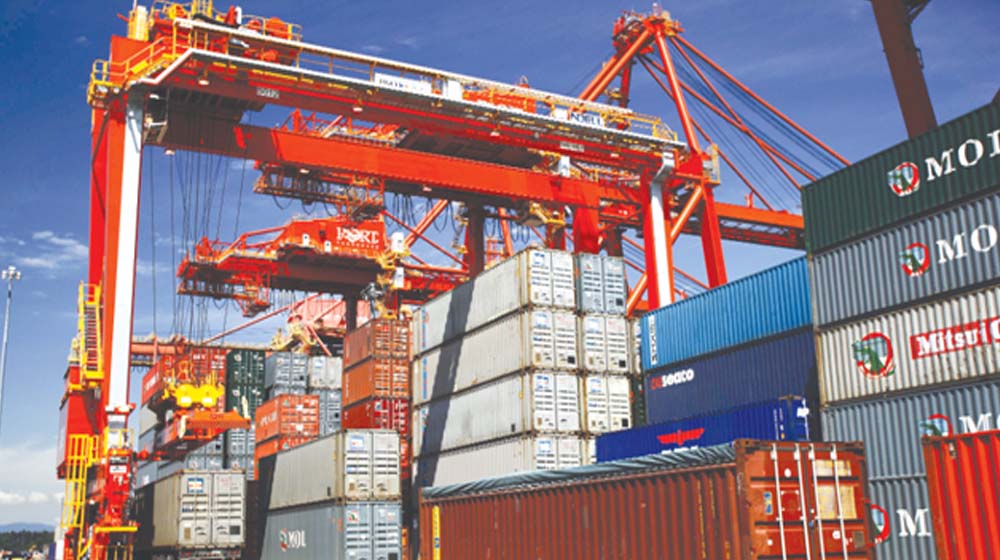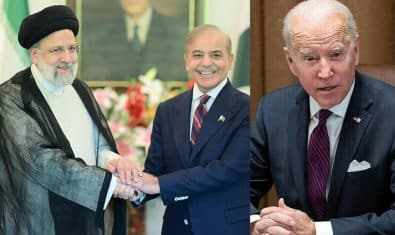Pakistan can potentially increase its exports up to $12 billion by 2024 even taking into account disruptions caused due to COVID-19, but around $7 billion of this untapped export potential is at risk, due to market frictions such as lack of transparency and related non-tariff measures, especially for small businesses looking to trade more across borders.
This has been stated in a report “Invisible Barriers to Trade – Pakistan: Business perspectives”, published by the International Trade Centre (ITC) and the World Bank Group, which also reveals that more than half of Pakistani exporters struggle with domestic and foreign regulatory barriers.
Better integration with the global value chain and increased exports are important for Pakistan’s economic development through job creation – especially for the youth and women. Identifying which non-tariff measures hinder Pakistani exports is critical for the government to better formulate its trade policies.
It further added that supporting small businesses to achieve export success also requires a clear understanding of the challenges they face. The report, based on a survey of approximately 1200 exporters, identifies the biggest trade hurdles facing Pakistani businesses.
Delays Are The Biggest Problems for Exporters
The main concern about the business environment is time delays, identified by 86 percent of surveyed companies. Corruption and arbitrary behavior (84 percent) and limited or costly airline transportation (81 percent) are their second and third biggest criticisms of the trade-related business environment.
Despite the free trade agreement between Pakistan and China, Pakistani exporters encounter obstacles in China. The arbitrary behavior of Chinese customs officials means local certificates might be refused, even if they are issued by a recognized private laboratory. Exporters also believe they face a longer inspection process in China than traders from other countries.
Furthermore, exporters say many Pakistani goods are excluded from the trade agreement, which means they are subject to high customs duties in China, the report added.
More than half of the exporters in Pakistan face difficulties with restrictive regulations or related trade obstacles. Among these are difficulties complying with technical requirements, lack of trade-related information, and inadequate domestic infrastructure.
In addition, domestic rules – from export inspections and tax refunds to export certification – also create difficulties. About 45 percent of the measures that cause problems for Pakistani exporters originate in Pakistan.
The report’s recommendations focus on greater transparency, upgraded quality and customs infrastructure, streamlined procedures, and better enforcement of quality compliance. It also recommends digital solutions, such as an integrated trade portal to give exporters the guidance and information they need to succeed.
Compliance & Regulatory Issues
Pakistani exporters say that high costs and administrative hurdles related to conformity assessment mean it is actually tougher to prove compliance with regulations than to comply. Issues such as the pre-shipment and border clearance procedures of partner countries, price-control measures, and rules of origin are relatively minor compared to the difficulties associated with conformity assessment procedures, the survey finds.
Destination partners apply 55 percent of the measures that are troublesome for Pakistani exporters. Transit countries apply less than 1 percent. Almost 43 percent of the difficulties involve regulations of Asian countries (excluding the South Asian Association for Regional Cooperation, or SAARC), and particularly Gulf Cooperation Council members. More than one third (36 percent) of burdensome foreign regulations are European.
Pakistani exporters say complying with European rules is difficult and the accompanying conformity assessment procedures are too strict. The neighboring SAARC countries account for only 5 percent of the problems that Pakistani exporters experience with foreign regulations. At the individual partner country level, the United Arab Emirates and the United Kingdom are responsible for the most reported regulations, each accounting for 8 percent. German measures account for 6 percent, while Oman and the United States account for 5 percent each.
Among domestic regulations create obstacles Pakistani regulations account for about 45 percent of the troublesome measures that exporters face. Most of these involve export inspections (31 percent), tax refunds (27 percent), and export certification (10 percent). Pakistani policies cause 55 percent of the problems reported by exporters of manufactured goods and one-third of the difficulties that agriculture exporters experience. Large firms (52 percent) face more problems with domestic export regulations than small and medium-sized businesses (45 percent).
Exporters often face difficulties with regulation not only because it is too strict or complex, but also – and at times solely – because of the steps they must take to comply with that regulation. Pakistani exporters say the regulations are overly strict or compliance is difficult in just 12 percent of the cases. In contrast, the procedures are the problem in 70 percent of the cases – and most of these occur in Pakistan itself.
The remaining 18 percent are difficult due to both the regulation itself and related procedures. More than two-thirds of these obstacles occur in Pakistan. The most important ones are slow processes on the necessary paperwork and high fees and charges to obtain required certification or testing. Informal payments and inadequate facilities for testing and certification in Pakistan were also frequently reported.
Of the 694 exporters surveyed from the manufacturing sector, almost half (47 percent) face difficulties with nontariff measures and related procedures. The most affected are exporters of goods such as textiles (51 percent), clothing (50 percent), and leather products (44 percent). Pakistani export policies are the main concern of the manufacturing sector, accounting for more than half of reported regulations.
Most of the difficulties that pharmaceutical exporters encounter are linked to product certification required by importing countries or Pakistan. Some drug exporters cannot meet the strict technical requirement of foreign markets. Exporting to the United States and the United Kingdom requires FDA certification of conformity, but there are no internationally recognized facilities in Pakistan that can provide this certificate.
Export Infrastructure and Quality Issues
The survey identifies numerous challenges, especially regarding export-quality management and infrastructure in the country. These must be addressed to support private-sector development and to strengthen export competitiveness. Improving quality infrastructure and enforcing quality compliance are key to export development.
Pakistani trade regulations and processes must be streamlined to facilitate exports. A policy rethink is needed on advance payment restrictions on raw material imports and processes involving the duty drawback scheme. Export inspection processes at the customs also should be improved, it added.
The report suggests ways for the government and the private sector to crank up competitiveness by addressing issues such as export inspections, tax refunds and export certification. “For Pakistani exporters that are trying to introduce new products, access to export intelligence and information on what it takes to reach a new market is very valuable, particularly for new, small exporters that lack the scale to invest in information searching,” said Gonzalo Varela, Senior Economist at the World Bank in Pakistan.



























As long as Imran Khan is in power the future of Pakistan is totally secure. We have no corruption at the upper level and appointments are being made on 100% merit. Since selection is based on merit so these people will perform. Our exports may be will cross 50 Billion US Dollars if Imran Khan will be given a chance to lead properly for the next 10 years.